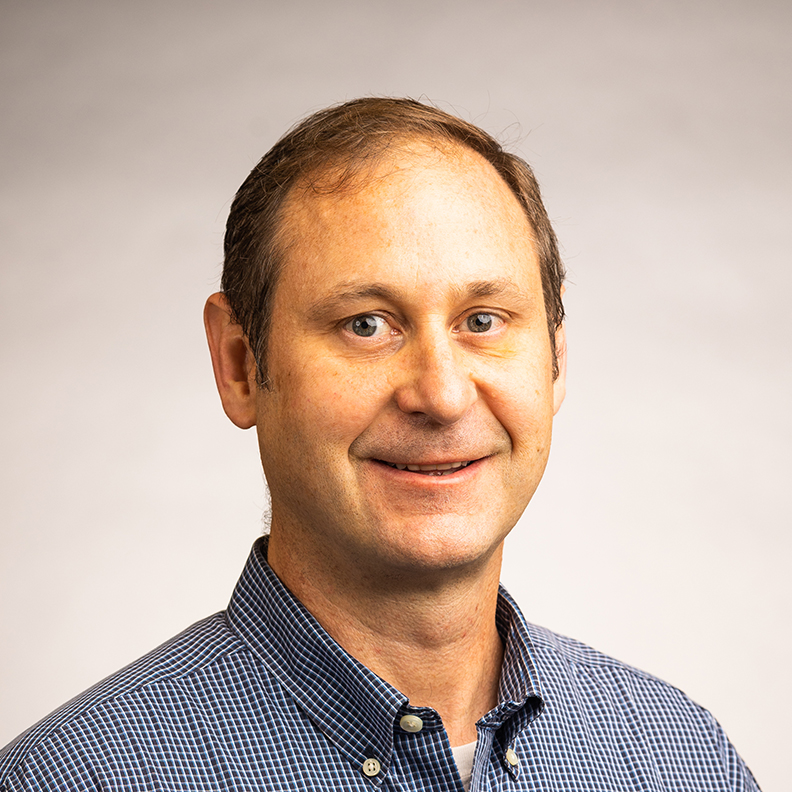Kyle Bennett

Dr. Kyle Bennett is an ecologist and evolutionary biologist who uses molecular tools to investigate species relationships. A current project examines an unusual mitochondrial inheritance pattern called Doubly Uniparental Inheritance (DUI) that is found in the marine mussel genus Brachidontes. In DUI, in addition to the regular maternally-inherited mitochondrial genome, males have a second paternally-inherited one found only in sperm. He and his students are sequencing mitochondrial genomes from several closely related species to determine differences in the rate of mutation within a genome, between species, and among the sex-based linages. Evolutionary pressures may be different for somatic cells compared to sperm cells and that selection difference would be reflected in the mitochondrial genomes. They are also comparing the population genetics of the species to understand their evolutionary histories.
Dr. Bennett earned a Ph.D. in ecology and evolution at Rutgers University. His dissertation examined genetic and morphological cues to understand species boundaries in a cryptic complex of closely related mussels species.
- BIO 100 Principals of Biology
- BIO 105 Environmental Biology
- BIO 200 General Biology I
- BIO 201 General Biology II
- BIO 334 Invertebrate Zoology
- BIO 356 Evolution and Population Genetics
- BIO 452 Systematics and Phylogenetics
- BIO 454 Aquatic Ecosystems
- BIO 498 Biology Capstone Seminar
- FYS 100 Understanding Animal Diversity
- KEY 115 KEYSTONE First-Year Research Experience for STEM
Bennett, K. F., A. W. Bailey, D. J. Brambert, E. W. Ferhati, C. A. Karson, U. Nafasat, J. K. Wadleigh, and A. H. Wright. 2014. The F type mitochondrial genome of the scorched mussel: Brachidontes exustus,(Mytiloida, Mytilidae). Mitochondrial DNA. early online
Bennett, K. F., A. J. Reed and R. A. Lutz. 2011. DNA Barcoding reveals Brachidontes mussels (Bivalvia: Mytilidae) from ecologically distinct intertidal habitats on Long Key, Florida Keys, are cryptic species, not ecotypes. The Nautilus 125: 63-71.
Lutz, R. A., A. G. Collins, E. R. Anis, A. J. Reed, K. F. Bennett, K. M. Halanych, and R. C. Vrijenhoek. 2006. Stauromedusan populations inhabiting deep-sea hydrothermal vents along the southern East Pacific Rise. Cahiers de Biologie Marine 47: 409-413.
- D. J. Hoffman, K. F. Bennett, B. L. Matz, T. L. Marsh. 2015. Identification of Euryarchaeota and bacteria in a methanogenic mixed culture from Queen’s Laundry, an alkali-silica hot spring of Yellowstone National Park. American Society of Microbiology, General Meeting May30-June 3.
- K. F. Bennett, D. Brambert, E. Ferhati, C. Karson, J. K. Wadleigh, A. Winquist-Bailey, and A H. Wright. 2014. The F type mitochondrial gene order of Brachidontes exustus (Bivalvia:Mytilidae) is different from all other known mytilids. American Malacological Society, joint meeting with the Asociación Latinoamericana de Malacología and Sociedad de Malacogía de México. June.
- A. H Wright, T. M. Absher and K. F. Bennett. 2014. Gene trees constructed from 28S sequences nest Branchidontes solisianus within the B. exustus complex. American Malacological Society, joint meeting with the Asociación Latinoamericana de Malacología and Sociedad de Malacogía de México. June.
- K. F. Bennett, S. Leon, T. Lee, and D. Ó Foighil. 2014. Multivariate morphometrics of shells from species in the Branchidontes exustus complex reveal morphological differences. American Malacological Society, joint meeting with the Asociación Latinoamericana de Malacología and Sociedad de Malacogía de México. June.
- J. K. Wadleigh, T. M. Absher & K. F. Bennett. 2012. A sixth species within the schorched mussel (Brachidontes exsustus) species complex. American Malacological Society annual meeting, June.
- K. F. Bennett, A. J. Reed & Richard A. Lutz. 2007. Habitat partitioning and phenotypic plasticity in the intertidal bivalve Brachidontes exustus cryptic species complex. Ecological Society of America, August.
- P. T. McPhearson, K. F. Bennett, R. M. Cox, M. I. Palmer and P. J. Morin. 2003. Mutualism or slavery? Classical mutualists positively affect associated communities albeit by symbiont host control. Ecological Society of America, August.
- K. F. Bennett and R. Wilan. 2003. Phenotypic plasticity of Brachidontes mussels from differing shorelines and habitats in the Florida Keys. American Malacological Society, June.